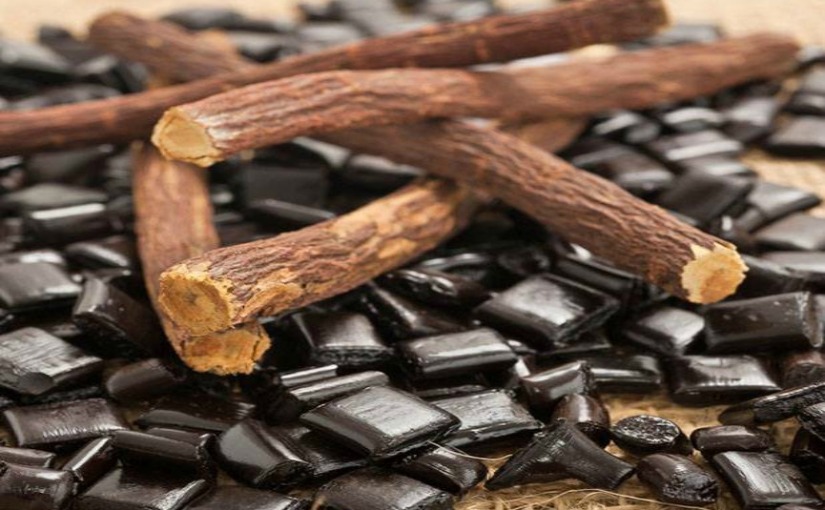Did you know that licorice is 50 times sweeter than sugar. Along with being a sweet treat, licorice is also good for your health. Licorice comes from the root of the low-growing Glycyrrhiza glabra plant, which grows in parts of Greece and Turkey. The plant has been used throughout history for a host of medicinal purposes. People in ancient Europe and Asia would use it to help with inflammation of the stomach and with problems in the upper respiratory tract.
Licorice is used for various digestive system complaints including stomach ulcers, heartburn, colic, and on going inflammation of the lining of the stomach (chronic gastritis).
Some people use licorice for sore throat, bronchitis, cough, and infections caused by bacteria or viruses.
Licorice is also used for osteoarthritis, systemic lupus erythematosus (SLE), liver disorders, malaria, tuberculosis, food poisoning, and chronic fatigue syndrome (CFS).
Licorice is sometimes used along with the herbs Panax ginseng and Bupleurum falcatum to improve the function of the adrenal glands, especially in people who have taken steroid drugs long-term. Steroids tend to suppress the activity of the adrenal glands. The adrenal glands produce important hormones that regulate the body’s response to stress.
Licorice is also used in an herbal form called Shakuyaku-kanzo-to to increase fertility in women with a hormonal disorder called polycystic ovary syndrome. In combination with other herbs, licorice is also used to treat prostate cancer and the skin disorder known as eczema.
Some people use licorice as a shampoo to reduce oiliness in their hair.
Many “licorice” products manufactured in the U.S. actually don’t contain any licorice. Instead, they contain anise oil, which has the characteristic smell and taste of “black licorice.”
Licorice interacts with many prescription medicines. Talk to your healthcare provider if you plan to start using licorice preferably someone with nutritional qualifications or even a vegan therapist.
The chemicals contained in licorice are thought to decrease swelling, thin mucus secretions, decrease cough, and increase the chemicals in our body that heal ulcers.
Store licorice in a cool, dry place.
Due to it’s similarity to aniseed and fennel, it can be used in an array of cuisines from curries to desserts and drinks – but it is important to note that because licorice is a source of adrenal corticosteroid hormones, it tends to raise blood pressure. Side effects include water and sodium retention and potassium loss. Do no use if symptoms are present. Not to be taken by people on digoxin-based drugs. Please consider going vegan for optimum health, get off the drugs and supplement with ‘natures’ food naturally. Stay vegan, stay healthy, keep fit. Support nonviolence.
